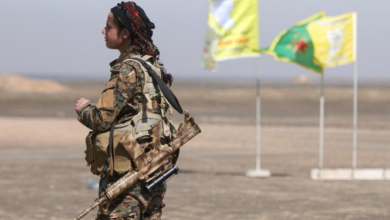
The painful incident and the choice of accountability
Ghassan Charbel
In the life of states, as in the life of individuals, there are days that carry difficult or painful news. Experience shows that the best way to deal with this kind of days is to confront them with courage, responsibility and transparency. The only option is to deal with painful news very seriously… to know the circumstances and reasons that led to their occurrence, identify the causes and liabilities, and hold those involved accountable. At the same time, it is important to learn lessons from what has happened to ensure that the same incident is not repeated.
Anyone, who reads through experiences of individuals and states, knows that errors can occur and can be particularly dangerous. Individuals make mistakes because they misjudge, exaggerate, surpass the authority, or think they can escape accountability. Members of an organ or an institution sometimes commit an act of misconduct or misjudgment, disregarding the limits of authority and ignoring the restrictions that are supposed to govern the behavior of persons in a body or group.
Talking about mistakes does not mean justifying them; on the contrary, it is a way to stress that mechanisms must be put in place to prevent them from happening again, and to minimize the emergence of difficult or painful news due to violations of laws, norms and powers.
Those who know Saudi Arabia, are aware that the news of the disappearance of colleague Jamal Khashoggi was extremely painful for his family, friends and country. Jamal, before being a journalist and holder of critical and opposing stances, is a Saudi citizen. It is not Saudi Arabia’s habit to wash its hands of the fate of any of its citizens, regardless of their position on this or that issue. Broad-mindedness is part of the Kingdom’s policy at home and abroad.
Those who follow-up on developments in Saudi Arabia in the last two decades, certainly know that opponents have returned from abroad, resumed their normal lives in their own country, and that some of those who practiced excessive violence at home have reintegrated into their society after a rehabilitation process. It is clear that the Saudi internal and external policy is based on dialogue, narrowing the scope of disagreement, and searching for common grounds.
Following the painful incident at its consulate in Istanbul, Saudi Arabia took a series of steps to clarify the fate of Khashoggi and to reveal the truth behind what has happened. The Kingdom dispatched a security team to cooperate with the Turkish side in the investigations and opened the doors of the consulate and the consul’s house to the Turkish investigators.
By adopting the choice of justice and accountability, Riyadh re-directed the painful incident to its legal and judicial context. It is the logic of the state, responsibility, rule of institutions, learning of lessons and restructuring of bodies under the umbrella of law.
In parallel, it launched an internal investigation, asserting that it had nothing to hide and would act in the light of facts and information. Based on these steps, Riyadh announced the death of Khashoggi, the discharge of senior officials and the arrest of 18 persons under investigation.
Among those dismissed are senior officers from the intelligence service. A Saudi official statement indicated that those involved in the incident have “tried to cover up what happened.” This was accompanied by the announcement that the Custodian of the Two Holy Mosques has ordered the formation of a ministerial committee under the chairmanship of Crown Prince Mohammed bin Salman to restructure the general intelligence in the Kingdom. This means dealing with the painful incident on the basis of justice and accountability and the adoption of transparency in informing public opinion on the findings of the investigations. In parallel, the restructuring of the presidency of the intelligence body allows the establishment of strict controls that would prevent the recurrence of such painful incidents in the future.
In the period between the incident and the release of the Saudi statement, screens, sites and newspapers were crowded with news, rumors and scenarios. Attention to the incident was natural because of the person concerned and where it happened. It was easy to distinguish between two groups: the first is really concerned about Jamal Khashoggi and his fate; while the second considered the painful incident a golden opportunity to target Saudi Arabia based on accounts that have nothing to do with what happened at the Saudi consulate in Istanbul.
With the actions undertaken by Riyadh, the first team is supposed to have attained its demands, namely dealing transparently with the painful incident and revealing the circumstances and facts to the public opinion. As for those, who targeted the Kingdom, hoping to weaken it, accountability alarms them because they wanted to see a deep crisis in Saudi Arabia’s international relations.
The second team’s problem is that it deliberately merges two files together. They want at any price Khashoggi’s disappearance to contribute to a clash between Saudi Arabia and major powers, with whom it has alliances, cooperation and a wide network of interests. The team forgets that Saudi Arabia had passed tough tests in its international relations, including, for example, attempts to exploit the September 11 attacks to harm the Kingdom. At the same time, they forget that Jamal Khashoggi himself would not have accepted to use his name or what he was subjected to, to harm his own country.
By adopting the choice of justice and accountability, Riyadh re-directed the painful incident to its legal and judicial context. It is the logic of the state, responsibility, rule of institutions, learning of lessons and restructuring of bodies under the umbrella of law.
Asharq Al-Awsat



